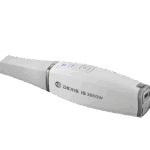After reviewing the Emergency Temporary Standard, ETS, released by OSHA last week, the ADA found that dental practices are largely exempt.
The American Dental Association (ADA) reports, that following its review, it has found that dental practices are largely exempt from the new COVID-19 Healthcare Emergency Temporary Standard (ETS) released by OSHA (Occupational Safety and Health Administration) released on June 10.
The American Association of Orthodontists (AAO) said last week that its legal and advocacy teams, working in conjunction with its federal lobbyists, Cozen O’Connor Public Strategies, will continue to analyze the new ETS and provide a more detailed summary to AAO members in the coming week.
The new OSHA workplace ETS provides guidance to be implemented in healthcare settings where all employees may not be screened for COVID-19, and non-employees and patients with suspected or confirmed COVID-19 are allowed to enter and may be treated. Dental offices most likely to be affected by this standard would include hospital-based oral surgery practices or those who provide care for COVID-19 patients.
The new OSHA workplace ETS provides guidance to be implemented in health care settings where all employees may not be screened for COVID-19, and non-employees and patients with suspected or confirmed COVID-19 are allowed to enter and may be treated. Dental offices most likely to be affected by this standard would include hospital-based oral surgery practices or those who provide care for COVID-19 patients.
According to the OSHA’s guidelines, every dental office must have a COVID-19 plan, regardless of practice setting. Dental practices must also conduct a workplace-specific hazard assessment for COVID-19. Based on OSHA’s Hazard Identification and Assessment, the ADA has already created a guide and checklist to walk dentists through this process at ada.org/virus.
According to OSHA’s recommendations, dentists should continue pre-appointment patient screenings to identify individuals with suspected or confirmed COVID-19, rescheduling their appointments if possible or referring them as necessary.
The ADA notes that per the OSHA guidelines, employers are encouraged to follow Centers for Disease Control and Prevention (CDC), state, and local regulatory guidelines.









